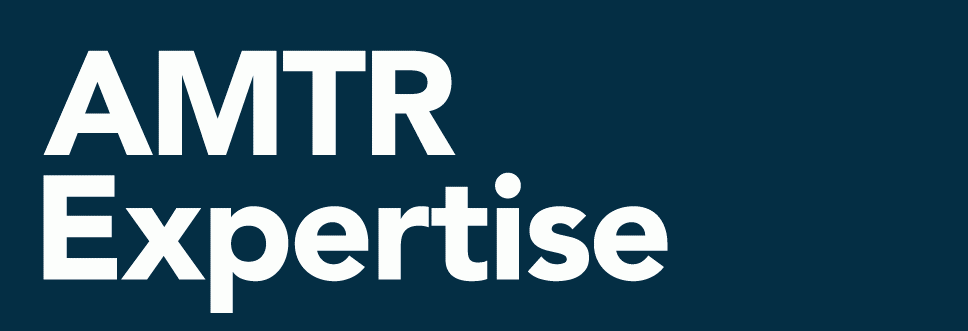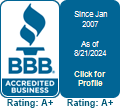
AMTR is in full support of The Transportation & Logistic Council (TLC) and the National Shippers Strategic Transportation Council (NASSTRAC) efforts to address the unreasonable bill of lading changes as set forth in the Supplement 2 to the National Motor Freight Classification (NMFC) version NMF 100-AP, that became effective on August 13th. Included in this supplement were silent but drastic changes to the Uniform Straight Bill of Lading, Straight Bill of Lading–Short Form and the NMFC rules in Item 360 regarding bills of lading. These changes were made without notice and without a comment period for shippers. Please find below the most significant changes and the impact that shippers will incur:
1. NMF 100 Item 360-B Uniform Straight Bill of Lading Terms and Conditions Sec. 1 (b)
• THE CHANGE:
Previous version: “…The burden to prove freedom from negligence is on the carrier or the party in possession.”
Effective in Sup 2: “…The burden to prove carrier negligence is on the shipper.”
• THE EFFECTS:
This qualification is in regard to loss or damage due to negligence of the carrier. Previously, the carrier—or the party in possession—had to prove they were not negligent. Carriers are actually in possession of freight when shipping damage occurs. Now the burden of proof has shifted to the shippers. This becomes exceedingly difficult because the shipper did not possess the freight at the time the damage occurs. They are not knowledgeable about the movement of the shipment from origin to destination, and therefore are at an unreasonable disadvantage. This is in contradiction to the Carmack Amendment. In the Amendment, the procedure is to prove that the shipment was handed over to the carrier in good condition, but was received by the consignee in a measureable, damaged condition – not needing to provide that the carrier caused damage AND that it was through negligence.
• COUNTER MOVES TO PROTECT SHIPPERS:
Shippers will have to be aware of this change and protect themselves by first becoming knowledgeable about the change in wording and how it will affect their business. Next will be the understanding of The Carmack Amendment and transportation law. With this combination, shippers can include contract terms that will protect the shipper from this reversal of practice.
2. NMF 100 Item 360-B Uniform Straight Bill of Lading Terms and Conditions Sec. 1 (b)
• THE CHANGE:
Previous version: “No carrier shall be liable for any loss or damage or for any delay caused by an Act of God, the public enemy, the authority of law or the act or default of shipper.”
Effective in Sup 2: “No carrier shall be liable for any loss or damage or for any delay caused by an Act of God, the public enemy, the authority of law, the act or default of the shipper, riots or strikes, or any related causes.”
• THE EFFECTS:
There were two additions to the list of conditions in this sentence. The first was that “riots or strikes” were added to the list of conditions. This is a new common law defense, and with new additions there will most likely be trial and error by litigation. This can become overwhelmingly costly and time consuming.
Another new addition is the phrase “or any related causes.” This is extremely vague in its meaning and application. Ambiguity in this sense could be harmful to shippers when trying to prove the carrier’s negligence. It is hard to prove a case on a clause that is vague.
• COUNTER MOVES TO PROTECT SHIPPERS:
This will again be on the shipper to negotiate a well-defined and protective clause in their contracts with carriers. The process will not be as simple as just adding a sentence to the contract. It will have to be a compilation of conditions created from someone knowledgeable about the history of liability and familiar with current transportation law.
3. NMF 100 Item 360-B Uniform Straight Bill of Lading Terms and Conditions Sec. 2
• THE CHANGE:
Previous version: “…carrier is not bound to transport a shipment by a particular schedule or in time for a particular market, but is responsible to transport with reasonable dispatch.”
Effective in Sup. 2: “…carrier is not bound to transport a shipment by a particular schedule or in time for a particular market, but will transport the shipment in the regular course of its providing transportation services.”
• THE EFFECTS:
“Reasonable dispatch” has been the standard for a century. It has gone from a standard that could be applied across all carriers to a more carrier specific time frame. This is holding shippers captive to the carrier’s chosen standards. We already see carriers offering different transit times for different prices. Some get a larger discount for taking the service that will allow the carrier to possibly hold back a shipment so that they may better use the capacity of their trailers. Then you also have expedited and guaranteed shipments that come with added costs. This leads shippers to start questioning whether this could become a big enough issue that they will be forced to pay more for services to ensure their shipments are being delivered in an acceptable time frame.
• COUNTER MOVES TO PROTECT SHIPPERS:
Shippers will need to be vigilant in being involved in legislation regarding the Hours-of-Service rules. The more regulations put on carriers, the more likely that delivery time frames will become longer. Being aware and involved with the open comments period regarding these changes will also be important for shippers. The more vague these stipulations become, the more room there is for shipping problems to occur.
4. NMF 100 Item 360-B Uniform Straight Bill of Lading Terms and Conditions Sec. 3 (b)
• THE CHANGE:
Previous version: “…except that claims for failure to make delivery must be filed within nine months after a reasonable time for delivery has elapsed.”
Effective in Sup. 2: “Claims for loss must be filed with the carrier not more than nine (9) months from the date of the bill of lading.”
• THE EFFECTS:
There were a few wording changes that seemed less significant, i.e.: “failure to deliver” was changed to “loss.” However, there was a significant change made regarding the timeline for filing claims for loss. Previously, it was nine months from a reasonable delivery time frame; now it is “nine months from the date of the bill of lading.” So shippers should be asking which bill of lading date is to be used. Is it the date the shipment was requested? Is it the date the bill of lading was created? Is it the date when the bill of lading was printed? Or is the bill of lading date the pickup date? What if there is a scheduled pickup date listed but the shipment was actually picked up later than that date? Again, ambiguity creates problems in these stipulations. Overall, whichever date is eventually determined to represent the bill of lading date, the time frame for filing a claim for loss has been shortened. No longer does the clock start after the loss of freight has become a possibility because it has not been delivered in a reasonable amount of time; now it starts somewhere on the front end—before loss is even a possibility.
WHO WILL THIS AFFECT?
Virtually all major motor carriers in the US—less-than-truckload and truckload—are participants to the NMFC, and freight charges based on rates dependent on classifications provided in the NMFC are required to use the Uniform Straight Bill of lading. Those who do not use the classification but are a participating carrier are also subject to such rules [NMF 100 Item 362-B]. Therefore, the impact of the changes will impact most shippers and shipments [see NMF 100 Item 360-B Sec. 1 (a) and (b)]. If shippers so choose to use their own bill of lading, per NMF 100 Item 360-B Sec. 1(h), they are still bound to all of the provisions and conditions of the Uniform Straight Bill of Lading.
SINCE THE SUPPLEMENT BECAME EFFECTIVE:
The Transportation & Logistics Council (TLC) filed a petition with the Surface Transportation Board (STB) for suspension and investigation of the Supplement on July 29th. Find that full document here: http://www.tlcouncil.org/sites/default/files/tlc_petition_7-29-16_docket_35008_0.pdf. The National Shippers Strategic Transportation Council (NASSTRAC) then filed a petition in support of TLC dated August 1st. Find the full document here: http://www.tlcouncil.org/sites/default/files/nasstrac_8-1-16_dkt_35008_0.pdf. The STB released their decision on August 12th. The STB denied the request and stated parties should file supplemental pleadings by September 12th. There is an open comments period and shippers are urged to comment in support of Docket Number IMA 35008. You can send your comments to:
Chief, Section of Administration
Office of Proceedings
Surface Transportation Board
395 E. Street, SW
Washington, DC 20423





There are no comments yet, but you can be the first